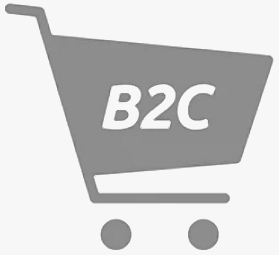Accredited InvestorsAltcoinAnatoli UnitskyAnti-Money Laundering (AML) In CryptoAPIArbitrageArtCoin TokenArticle DirectoryASICAuction Terminology GlossaryBasics of Stock Market InvestingBear MarketBest Crypto Payment Provider In the WorldBitcoinBlockchainBlockchain ConfirmationBlockchain Consensus MechanismBlockchain ForkBlockchain GlossaryBored Ape Yacht ClubBuild a Business That OutperformsBull MarketBuying SkyWay SharesByzantine Fault Tolerance (BFT) ExplainedCasascius CoinCentral Bank Digital Currency (CBDC)Centralized Crypto ExchangeCoinCoinsetCold WalletCollateralCommodity Futures Trading Commission (CFTC)Cross-Chain TechnologyCRUCrypto ExchangeCrypto GlossaryCrypto JokesCrypto Terms to KnowCrypto TickerCryptocurrencyCryptographyCryptojackingCryptounit BlockchainCryptounit GlossaryCryptounit ProgramdApp (Decentralized Application)Dead CoinDecentralized Exchange (DEX)Decentralized Finance (DeFi)Difference Between Bitcoin and EthereumDifferent Ways of Investing MoneyDigital CurrencyDistributed LedgerDo Your Own Research (DYOR)Dollar Cost Averaging (DCA)Dow Jones Industrial Average (DJIA)EncryptionERC-20ERC-721EthereumEvoScentFear Of Missing Out (FOMO)Fear, Uncertainty and Doubt (FUD)Fiat MoneyFNT Fintech CompanyGenesis BlockGlobal Unit PayGlossary of Banking TermsGlossary of Business TermsGlossary of Financial TermsHalvingHODLHot WalletHow Do I Start InvestingHow Rich is Satoshi Nakamoto?How to Create a BlockchainHow to Find Private InvestorsHow to Get Into FintechHow to Program Smart ContractsI Am Thrilled to Be a Part of This Global ProjectInitial Coin Offering (ICO)Initial Public Offering (IPO)Initial Token Offering (ITO)Innovation Basalt TechnologyInnovative Transportation TechnologiesInternational Bank Account Number (IBAN)Investing in Gold Mining StocksInvesting in Gold MiningJagerJoy of Missing Out (JOMO)Know Your Customer (KYC)LedgerLiquidity in CryptocurrencyMaker and Taker Fees in Crypto TradingMarket Capitalization (Market Cap)Meme CoinMetal Credit CardMetaMaskMillenials Now Have Access to Generational WealthMy Best Investment EverNew Digital EvolutionNFT GlossaryOff-Chain TransactionsOn-Chain TransactionsOpen Edition NFTPeer-to-Peer (P2P)Personal Loan GlossaryProbably the Best STO on the MarketProof of Stake (PoS)Real Estate Glossary of TermsReal Estate Investing GlossaryRebase TokenSecurities and Exchange Commission (SEC)Security Token ExchangesSecurity Token Offering (STO)Soulbound Decentralized Identities for Security TokensSoulbound ID Launch by Stobox Proves a SuccessSoulbound TokensStoboxStock Market GlossaryTestimonialsTether Platform and Token (USDT)UnitEx ExchangeUnitsky String TechnologiesUNTBUSDUValidatorWe Started Investing When We Were 25What are Blue Chip NFT?What are Blue Chip Stocks?What are Crypto Assets?What are Crypto Smart Contracts?What are CryptoPunks NFT?What are Digital Assets?What are Digital Collectibles?What are Gas Fees?What are Gas Wars?What are Hashmasks?What are Non Fungible Tokens?What are Non-Sufficient Funds (NSF)?What are Soulbound Tokens (SBT)?What are Stablecoins in Crypto?What are Transactions Per Second (TPS)?What are Utility NFTs?What are Utility Tokens?What Does Burning Crypto Mean?What Does Diamond Hands Mean?What Does Paper Hands Mean?What Does To The Moon Mean?What Does WAGMI Mean?What Happened to Satoshi Nakamoto?What is a 51% Attack?What is a Baby Boomer?What is a Backlink?What is a Banner?What is a Barcode?What is a Bid-Ask Spread in Crypto?What is a Block in Blockchain?What is a Block Reward?What is a Blockchain Address?What is a Blockchain Node?What is a Blockchain Oracle?What is a Blog?What is a Bond?What is a Bot?What is a Broker?What is a Business Accelerator?What is a Cash Cow?What is a Commercial Bank?What is a Commodity?What is a Con?What is a Credit?What is a Credit Limit?What is a Credit Rating?What is a Crypto Airdrop?What is a Crypto Bridge?What is a Crypto Scam?What is a Crypto Token?What is a Crypto Wallet?What is a Crypto Whale?What is a Crypto Winter?What is a Cryptocurrency Public Ledger?What is a Cryptocurrency Roadmap?What is a DAO?What is a Dark Pool?What is a Day Trader?What is a Dead Cat Bounce?What is a Default?What is a Derivative?What is a Digital Credit Card?What is a Fiscal Quarter?What is a Fungible Token?What is a Governance Token?What is a Grace Period?What is a Hard Fork?What is a Hot Wallet?What is a Hybrid Blockchain?What is a Hybrid PoW/PoS?What is a Joint Account?What is a Market Cap?What is a Merkle Tree in Blockchain?What is a Mining Farm?What is a Nonce? What is a PFP NFT?What is a POS System?What is a Prepaid Card?What is a Private Blockchain?What is a Private Key?What is a Public Blockchain?What is a Public Key?What is a Reserve Currency?What is a Ring Signature?What is a Routing Number?What is a Rug Pull in Crypto?What is a Safe Deposit Box?What is a Satoshi?What is a Security Token?What is a Seed Phrase?What is a Shitcoin?What is a Sidechain?What is a Soft Fork?What is a Spot Market?What is a State Bank?What is a SWIFT Code?What is a Tax Identification Number (TIN)?What is a Time Deposit?What is a Transaction Account?What is a Variable Interest Rate?What is a Virtual Assistant (VA)?What is a Virtual Card?What is a Virtual Currency?What is a Visa Card?What is a Whitelist in Crypto?What is a Whitepaper?What is Accounts Payable (AP)?What is AMA in Crypto?What is Amortization?What is an Accrual?What is an ACH Transfer?What is an Actuary?What is an Addendum?What is an Algorithm?What is an Angel Investor?What is an Annuity?What is an Asset?What is an ATM?What is an Atomic Swap?What is an Audit?What is an Avatar?What is an EIN?What is an Embargo?What is an Entrepreneur?What is an IDO (Initial Dex Offering)?What is an Interest Rate?What is an Internet cookie?What is an Investment Bank?What is an NFT Drop?What is an NFT Floor Price?What is an Ommer Block?What is an Orphan Block?What is an Outstanding Check?What is an Overdraft?What is Artificial Intelligence (AI)?What is B2B (Business-to-Business)?What is B2G (Business-to-Government)?What is Bartering?What is Bitcoin Dominance?What is Bitcoin Pizza Day?What is Blockchain Immutability?What is Blockchain Used For?What is BRICS?What is Business-to-Consumer (B2C)?What is C2C (Customer to Customer)?What is Capitalism?What is Catfishing?What is CFD Trading?What is Check Kiting?What is Cloud Mining?What is Communism?What is Content Marketing?What is Decentralization in Blockchain?What is DeFi in Crypto?What is Delisting?What is Depreciation?What is Digital Marketing?What is Diversification?What is Double Spending?What is Dumb Money?What is Dumping?What is Earnings Per Share (EPS)?What is Economics?What is Email Marketing?What is Equity?What is Etherscan?What is Fintech?What is Foreign currency?What is Forex?What is Fundamental Analysis (FA)?What is GameFi?What is Generative Art NFT?What is Gwei?What is Hard Currency?What is Hash Rate?What is Hashing in Blockchain?What is Inflation?What is Initial Game Offering (IGO)?What is Interest?What is Interest Income?What is Mainnet?What is Mastercard?What is Metaverse in Crypto?What is Mining in Cryptocurrency?What is Minting NFT?What is Mobile Banking?What is Money Laundering?What is NFT Alpha?What is NFT Metadata?What is NFT Rarity?What is NGMI Meaning?What is Nominal Interest Rate?What is Online Banking?What is Open-End Credit?What is OpenSea NFT Marketplace?What is Personal Identification Number (PIN)?What is Play-to-Earn?What is Polygon?What is Proof of Authority (PoA)?What is Proof of Work (PoW)?What is Public Key Cryptography?What is Pump and Dump?What is Quantum Computing?What is Refinancing?What is Retail Banking?What is Ripple?What is Sharding?What is Slippage in Crypto?What is Smart Money?What is Solvency?What is Soulbound ID?What is SSL?What is Staking in Cryptocurrency?What is Technical Analysis (TA)?What is Testnet?What is the Ask Price?What is the Better Business Bureau (BBB)?What is the Bid Price?What is the Dark Web?What is the InterPlanetary File System (IPFS)?What is the Gold Standard?What is the Lightning Network?What is the Prime Rate?What is the Sandbox?What is the Secondary Market?What is the World Bank?What is Tier 1 Capital?What is Tokenomics?What is TRC-20?What is Universal Banking?What is Unspent Transaction Output (UTXO)?What is Usury?What is Volatility in Crypto?What is Wash Trading?What is Web3?What is Whisper?What is XRP?What is Zero-Knowledge Proof (ZKP)?Who is Beeple?Who is Satoshi Nakamoto?Who is Vitalik Buterin?Why Tokenization is a Safe HavenWhy You Should Try Your Hand at Trading
What is Business-to-Consumer (B2C)?
- Home
- Glossary of Business Terms
- What is Business-to-Consumer (B2C)?
Business-to-consumer (B2C) is a term used to describe transactions between a business and individual consumers.

In other words, it refers to companies that sell products or services directly to the end-users or consumers. This model is different from the business-to-business (B2B) model, where businesses sell their products or services to other businesses.
What is Business-to-Consumer (B2C)?
B2C is a crucial aspect of the economy, and it has been on the rise in recent years due to the increasing popularity of online shopping. In fact, the global B2C e-commerce market is expected to reach $6.5 trillion by 2023, up from $2.3 trillion in 2017. This growth is attributed to the convenience, affordability, and accessibility of online shopping, which has enabled consumers to buy products from anywhere in the world.
Businesses that operate in the B2C model must understand the unique needs and preferences of individual consumers. This requires them to have a deep understanding of consumer behavior, demographics, and psychographics, which will enable them to tailor their products and services to meet the needs of their target market. B2C businesses must also have effective marketing strategies that resonate with their target audience, such as social media advertising, email marketing, and influencer marketing.
One of the key advantages of the B2C model is that it allows businesses to build direct relationships with their customers. This enables them to gather feedback, address customer complaints, and provide personalized customer support, which can help to build brand loyalty and trust. Furthermore, B2C businesses can leverage customer data to personalize their marketing efforts and provide targeted promotions and discounts.
However, there are also some challenges associated with the B2C model. One of the main challenges is the high level of competition, particularly in industries such as retail and e-commerce. This requires B2C businesses to differentiate themselves by offering unique value propositions, such as quality products, affordable prices, or exceptional customer service.
Another challenge is the need to stay up-to-date with changing consumer preferences and trends. B2C businesses must constantly adapt their products, services, and marketing strategies to meet the changing needs of their target audience. Failure to do so can result in a decline in sales and revenue.
Types of B2C Companies
B2C companies encompass more than just retailers and marketplaces, as they can also include content and service providers. These businesses can utilize a variety of profit models, such as marketing, advertising, and fee-based approaches.
Here are some common types of B2C e-commerce companies:
- Direct sellers: These businesses operate online stores where customers can purchase products directly from them. Popular examples include Zappos.com, Ikea.com, and Target.com.
- Intermediaries: These companies don't sell their own products or services but instead provide a platform that connects buyers with independent sellers and resellers. Online intermediaries earn revenue by charging a small percentage of each sale from vendors. eBay, Etsy, Expedia, Facebook Marketplace, and Poshmark are some examples.
- Advertising-based: These businesses rely on traffic-driving digital marketing strategies like content and social media marketing to connect shoppers with relevant ads for products and services. They make money by selling advertising space on websites and social media platforms. HuffPost is an example of an advertising-based B2C company. Another advertising-based approach is affiliate marketing, where a company partners with content creators to promote their product through blog or social media posts.
- Community-based: Similar to advertising-based businesses, community-based companies use online communities centered around specific identities, interests, and information. They leverage data obtained from website users, such as demographic data and geographic location, to connect users with targeted ads. Social media sites like Facebook and online forums are some examples.
- Fee-based: These e-commerce companies require customers to pay a subscription fee to gain unrestricted access to their content. The Wall Street Journal, The New Yorker, and Netflix are some popular examples.
The Bottom Line
The B2C model is a vital component of the global economy. It enables businesses to sell their products and services directly to consumers, build direct relationships with customers, and leverage customer data to provide personalized experiences. However, B2C businesses must also overcome challenges such as high competition and the need to adapt to changing consumer preferences.
Related Articles

Global Unit Pay
The Global Unit Pay platform is built on advanced blockchain technology and incorporates a comprehensive and highly sophisticated range of services for B2B, B2C, and C2C financial transactions.

What is B2B (Business-to-Business)?
This type of transaction is different from B2C, or business-to-consumer, transactions where companies sell directly to individual consumers. B2B transactions are...

FNT Fintech Company
FNT adheres to all compliance instructions and offers the most secure, comprehensive, and technically advanced set of services for conducting B2B, B2C, and C2C financial transactions.
- Home
- Glossary of Business Terms
- What is Business-to-Consumer (B2C)?